The lower costs of bringing actions – coupled with the influence that intervenors can have on case outcomes – makes this a strategic way forward for RAVEN’s partners who are asserting their rights through the courts.
Support RAVEN Intervenor Fund
Intervention is a strategic way to bring Indigenous perspectives to legal challenges without Nations having to shoulder the entire financial burden of bringing a case through the justice system.
Are you a representative of a Nation or Indigenous organization seeking support for an intervention?
What is an Intervenor?
An Intervenor is a third party permitted by a court to make arguments in a case. Intervenors are sometimes referred to as “friends of the court,” or as public interest advocates. While organizations such as the Canadian Civil Liberties Association and Amnesty International can and do intervene in legal challenges, large corporations whose interests are affected by proceedings are also frequently granted Intervenor status.
Leave to Intervene: a six-factor test
The test for leave to intervene in the Federal Court and the Federal Court of Appeal involves: proving that the intervenor will be directly affected by the outcome of the case; that the issue at stake is in the public interest; and, that there is no other way for the intervenor to bring their evidence and perspective to the court.
The six-factor test also involves proving that the intervenor has unique insight not already being provided by another party, and that the case evaluation will be strengthened by the intervenor — essentially, a test of the necessity for this particular intervention.
The Federal Court of Appeal summarizes this test as follows: “the salient question is whether the intervenor will bring further, different and valuable insights and perspectives that will assist the Court in determining the matter.”
For example, in Squamish Nation v. British Columbia — the legal action backed by the RAVEN Pull Together community — a number of industry associations applied to intervene. They were denied leave, due to lack of direct legal interest in the challenge, which hinged upon the claim that the province failed in its duty to consult First Nations when approving projects that have a direct impact on Indigenous communities. The dismissal noted that, while they had a potential economic interest in the Trans Mountain pipeline and tankers project’s completion, their legal rights and obligations would not be affected by the outcome of the appeal. Further, the court found the proposed intervenors did not have a distinctive perspective justifying granting intervenor status, and the issues they sought to advance would expand the scope of the appeal in a way that would be unfair to the appellant.
Read more about Intervenors

The Supreme Court of Canada’s Landmark Decision on the Robinson Treaties: What Does it Mean for Indigenous Rights?

Aboriginal Title to Ocean Territory is Still a Possibility Thanks to Saugeen Ojibway Nation

Court Update: Gitxaała’s Appeal Intervenor Arguments

The Clock Might Stop But Canada is Still Dishonourable

Picking Sides for Reconciliation: Assembly of Manitoba Chiefs Intervene in Jim Shot Both Sides v. Canada

The Next Chapter in West Moberly’s Legal Odyssey: a Rights Protection Intervention

A glimmer of hope as Heiltsuk Nation and others intervene in the Saugeen Ojibway Nation Appeal

West Moberly First Nation


